Credit Cards For Fair Credit – 7 Best Credit Cards For Fair Credit in 2022
Please note that we are not authorised to provide any investment advice. The content on this page is for information purposes only.
Please note that we are not authorised to provide any investment advice. The content on this page is for information purposes only.
A fair credit score is one step below good but one level above terrible or extremely poor credit. Your credit score is usually referred to as your FICO® score. This three-digit figure ranges from 300 to 850 based on the Fair Isaac Corporation’s scoring algorithm. If your score falls between 580 and 669, you are in the “fair” category.
Table of Contents

You may not be able to acquire a top-rated credit card with a fair credit score of 580 to 669, but you still have several good alternatives. To assist you in finding the best credit card for fair credit accessible from our partners, we’ve compiled a list of the finest credit cards for fair credit available.
Credit cards for fair credit allow cardholders with a credit score of 580 to 669 to borrow funds to pay for products and services at retailers that accept credit cards. Unsecured credit cards for fair credit require cardholders to repay the borrowed funds, plus any associated interest, as well as any extra, consented charges, either in whole or over time by the billing date. Your credit card issuer assigns you a credit limit when you create an account with them. This is the amount of money that your credit card provider will let you spend or pay bills.
Obtaining a credit card has numerous benefits. Credit cards make it easy to make purchases, and some even reward you for your spending. Furthermore, a credit card may be an effective instrument for establishing a good credit history. If you’re searching for your first credit card, you should know how they function and how to make the most of them.
If you’re unfamiliar with the process, applying for a credit card for the first time might be scary. Applying for credit cards is a lot easier than you would imagine. Knowing what actions to take and what to expect might help you get through the process of applying for your first credit card.
It’s useful to know what credit card providers look for in candidates before applying for one. While credit card firms take your salary and monthly housing payment into account, your credit ratings are given the greatest weight when making credit selections.
Before you apply for a card, check your credit score to see which ones you have the highest chance of getting accepted for. Some credit card providers, for example, distinguish between cards geared for persons with fair, good, or exceptional credit.
The next stage in the credit card application process is to decide the card you wish to apply for. You’ll need to perform some study to compare different card alternatives at this point.
These might assist you in determining which cards you should apply for. Suppose you’re new to credit or attempting to repair bad credit. In that case, you should also consider whether you need to focus on secured cards.
It’s as easy as going to the credit card company’s website and filling out an application. Many credit card companies may give you an acceptance decision within minutes of submitting your application.
Credit card firms examine your credit using your social security number, which results in a hard inquiry. Because hard inquiries might lower your credit score by a few points, it’s advisable to keep the number of credit cards you apply for to a minimum.
A credit card provider may reject your application for a variety of reasons. If you have a low credit score due to a history of late payments, for example, getting accepted may be challenging. It might also work against you if you have no credit at all because you’re just getting started with it.
If you’ve been rejected a credit card, you can contact the credit card provider directly and request a reconsideration. You’d have to show that you’re a strong candidate for a credit card based on your ability to manage credit responsibly and make your monthly payments on time.
The Discover it® Student Cash Back program might teach you how to get the most out of your cashback benefits. Each quarter, activate the rotating bonus categories to earn 5% cashback on purchases up to $1,500 and 1% beyond that. In other words, only the rotating categories may earn you $75 in cash each quarter. This card can help you earn while you learn if you activate it every quarter and match your purchases with Discover’s cashback calendar.
| APR Rate | Annual Fee | Recommended Credit | Star Rating |
| 12.99% – 21.99% | $0 | No credit history | 4.1 |
Pros
Cons
The Discover it Student Cash Back card is one of the few student credit cards that offer benefits comparable to its issuer’s flagship card. Its rotating category cash back is tough to top. The first-year cashback match is even better, especially given the card’s low continuing rates and fees.
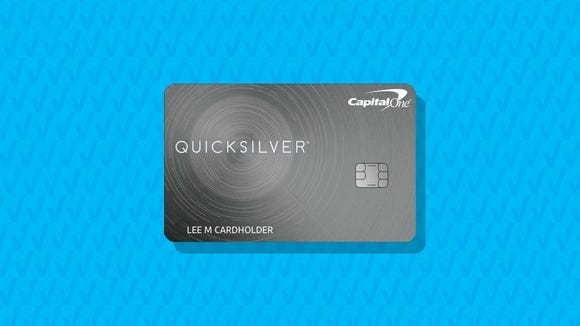
With no categories or activations, the Capital One QuicksilverOne Cash Rewards Credit Card is a terrific method for someone with acceptable credit to receive consistent cashback rewards: 1.5 percent on every transaction. You will be automatically evaluated for a larger credit line in as little as six months. To get cashback and improve your credit score, use this card wisely.
| APR Rate | Annual Fee | Recommended Credit | Star Rating |
| 26.99% (Variable) | $39 | Fair to Good (580 – 760) | 3.4 |
Pros
Cons
Individuals with fair credit or better can apply for the Capital One QuicksilverOne Cash Rewards Credit Card. With on-time payments, cardholders may be automatically evaluated for a larger line of credit in as little as six months. This card’s credit card usage is reported to all three major credit reporting agencies. This implies that cardholders may be able to enhance their credit score by using their cards responsibly.
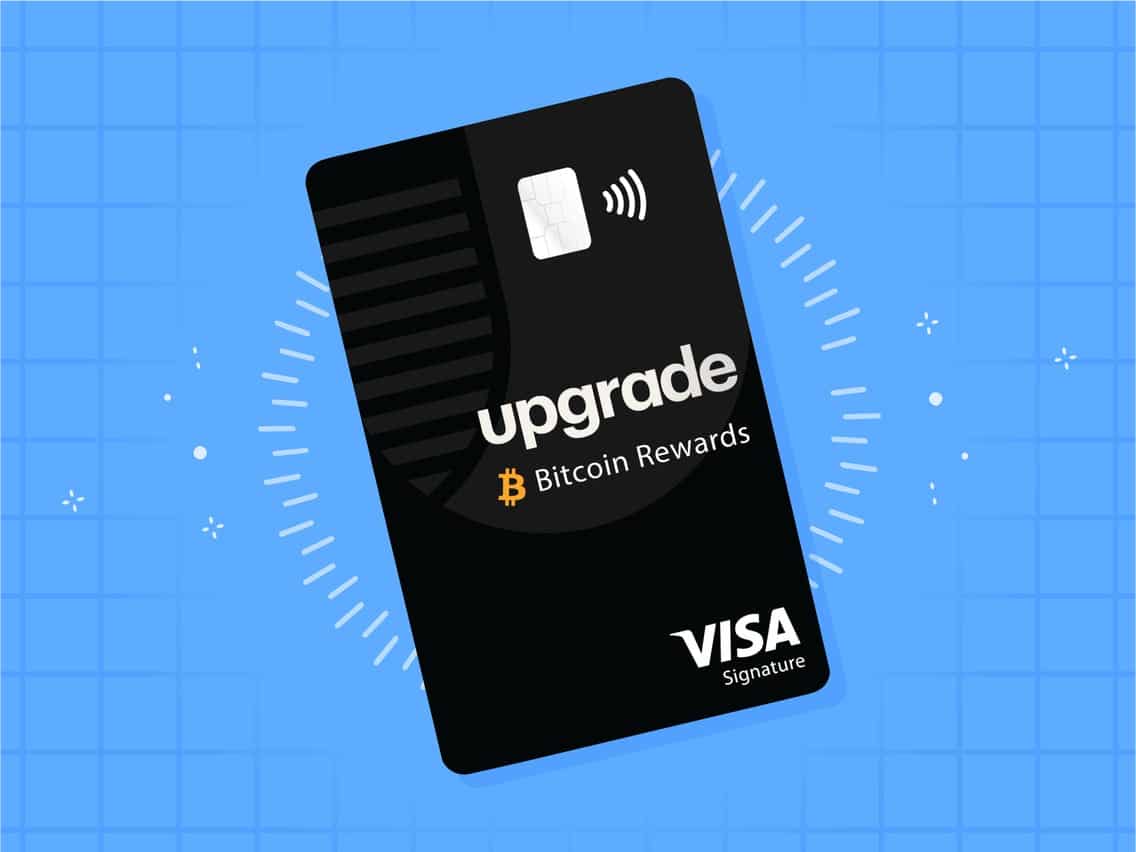
Do you expect to be able to carry a balance? The normal APR for the Upgrade Visa® Card with Cash Rewards starts at an8.99% – 29.99% super-low rate. There are no fees or penalties, but you should be aware that balance transfers and cash advances are not permitted.
| APR Rate | Annual Fee | Recommended Credit | Star Rating |
| 8.99% – 26.99% | $0 | Fair to Good (580 – 740) | 3.1 |
Pros
Cons
The Upgrade Card might provide a predictable and transparent financing option for consumers who have trouble managing credit card balances. The card might help you decrease interest rates and keep your debt repayment efforts on track while receiving cash back on all purchases by putting your amount on an installment plan or using debt consolidation loans.
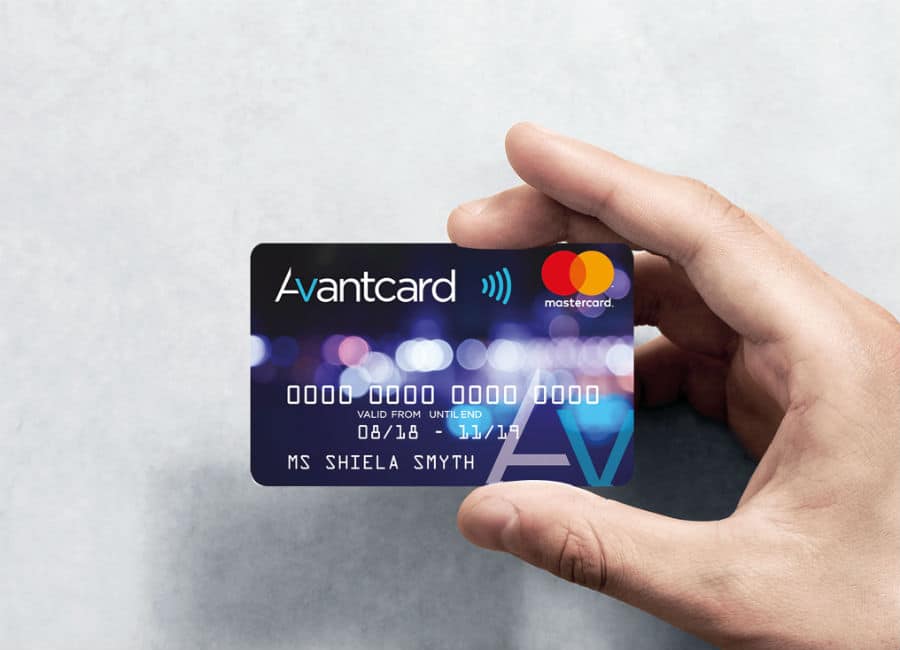
The Avant Credit Card’s attractiveness is mostly based on the features it lacks, such as no penalty APR and no hidden fees. While you should always pay your total credit card bill on time if at all feasible, knowing that the Avant card won’t charge you a penalty APR gives you some peace of mind. Take into consideration that the card’s standard variable APR (24.99%) is already rather high.
| APR Rate | Annual Fee | Recommended Credit | Star Rating |
| 26.99% variable | $59 | Fair to Good (580 – 740) | 3.0 |
Pros
Cons
While it isn’t the cheapest choice, a secured card will almost likely be a better offer if you can afford to put money down as a security deposit. The Avant Credit Card is a good beginning card that may help you develop credit if you use it responsibly. But, in the end, it should just be a stopgap on your road to more value, lower-cost cards.

The key selling point of a credit card is sometimes right there in the name, as it is with the Credit One Bank® Platinum Visa®, for Rebuilding credit. Despite certain features aimed at helping users improve their credit, such as online access to credit scores, the card offers nothing to set itself apart from competitors. You might choose to play the field if you already have a fair or average credit score.
| APR Rate | Annual Fee | Recommended Credit | Star Rating |
| 23.99% variable | $75 for the first year. After that, $99 annually. | Bad to Fair (300 – 670) | 2.6 |
Pros
Cons
Although the Credit One Bank® Platinum Visa® for Rebuilding credit doesn’t have the same initial charge as a secured credit card, the restricted 1% cashback isn’t worth getting nickeled and dimed by the slew of fees included in its convoluted terms and conditions.
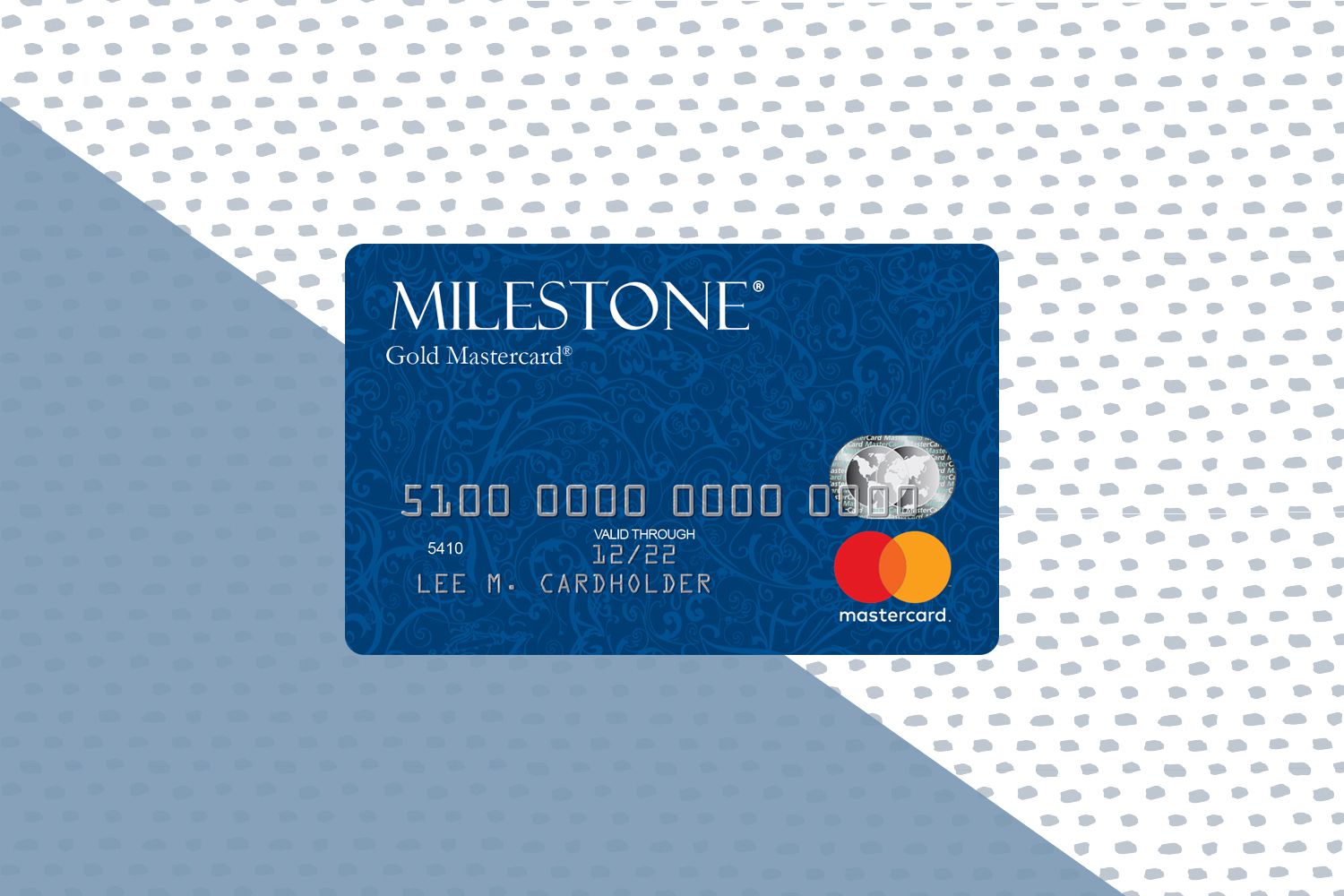
The Milestone® Gold Mastercard® is a simple credit card that might be useful for someone with fair to good credit who wants to enhance their credit score. If your card is lost or stolen, the Milestone Gold features chip card technology to help protect you from fraud. Itoffers zero-liability fraud protection for illegal purchases. You also get identity monitoring, which protects your Social Security number and other sensitive information.
| APR Rate | Annual Fee | Recommended Credit | Star Rating |
| 24.90% | $35 – $99 | Bad to Fair (300 – 670) | 2.7 |
Pros
Cons
Unless you have extremely few alternatives, this card might not be the ideal decision. The Milestone Gold Mastercard limit, rates, and fees are a horrible mix for those attempting to get back on their feet for a card marketed more toward those with less-than-stellar credit ratings or minimal credit history. The combination of hefty yearly fees and a limited credit limit substantially reduces the initial available credit. The infinite penalty APR affords little leniency to individuals who could make a late payment.
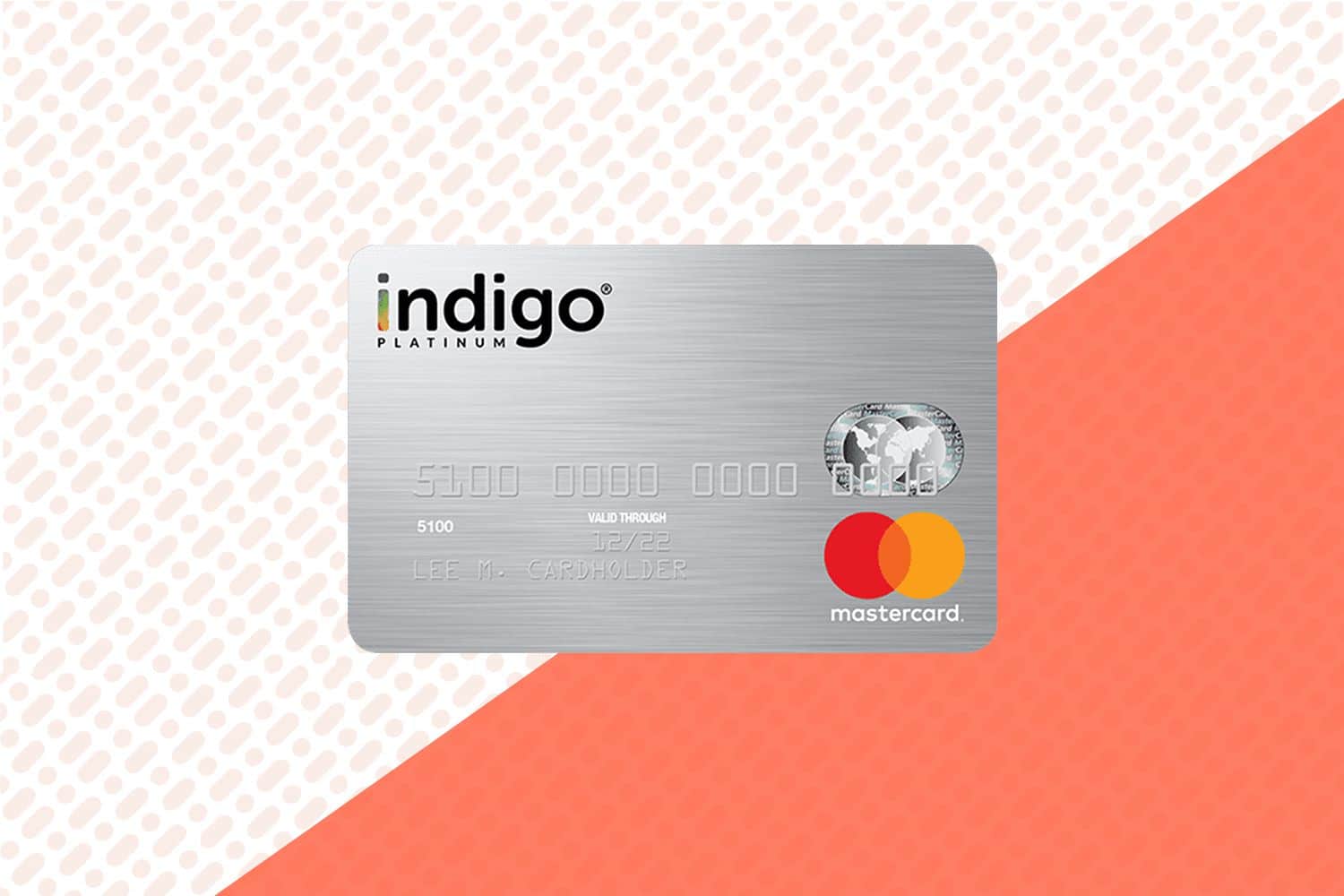
Finding a credit card after filing for bankruptcy might be challenging. Fortunately, the Indigo® Platinum Mastercard® allows potential cardholders to prequalify without impacting their credit score even with a past bankruptcy. Because it allows free access to accounts via the mobile app, the Indigo Platinum Mastercard is a wonderful choice for the tech-savvy cardholder.
| APR Rate | Annual Fee | Recommended Credit | Star Rating |
| 24.90% | $0 – $99 | Bad to Fair (300 – 670) | 2.6 |
Pros
Cons
The Indigo Platinum Mastercard may be an excellent option for you if you have bad or no credit. This card does not need a lengthy approval procedure, and you may prequalify for it even if you have no credit history. Furthermore, this card does not need a security deposit.
The conditions of credit cards vary, but the majority of them contain the same fundamental features. It’s simpler to pick the correct credit card and use it sensibly to understand these fundamental credit card characteristics.
| Credit Card Type | Rewards | Annual Fee | Ease of Use |
| Credit Card for Fair Credit | None (Variable) | $0 – $99 | Very |
| Other Credit Cards | Points | $400+ | Not at all |
A credit card for fair credit, when used appropriately, may help you raise your credit score and increase your chances of receiving better cards, reduced interest rates, and other benefits. It may be simpler to qualify for easy loans, mortgages, and other forms of credit with a higher credit score at Heart Paydays.

ALSO CHECK:
– Credit Cards For People With Bad Credit
– Balance Transfer Cards for Fair Credit